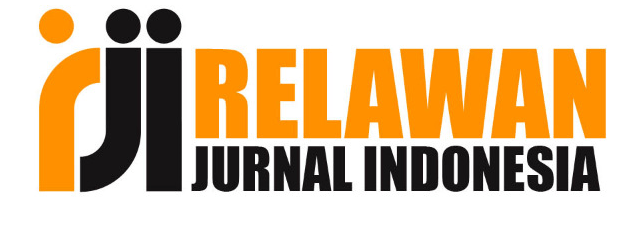HUBUNGAN ANTARA PSIKOLOGI OLAHRAGA DAN PSIKOLOGI PELATIH DENGAN PRESTASI YANG DICAPAI OLEH ATLET: STUDI LITERATUR
Abstract
HUBUNGAN ANTARA PSIKOLOGI OLAHRAGA DAN PSIKOLOGI PELATIH DENGAN PRESTASI YANG DICAPAI OLEH ATLET: STUDI LITERATUR
Mar'i Yusuf Rizki Akbar Sumartono*, Afif Kurniawan
Fakultas Psikologi, Universitas Airlangga, Surabaya, Jawa Timur, Indonesia
*Penulis korespondensi: mariyusufrizkiakbar@gmail.com
ABSTRAK
Penelitian ini bertujuan untuk mengetahui hubungan antara prestasi yang diraih atlet dengan psikologi olahraga dan psikologi pelatihan. Metode yang digunakan dalam tulisan ini adalah metode tinjauan literatur (library research) yaitu didasarkan pada pendapat-pendapat para ahli dan hasil-hasil penelitian terdahulu. Data yang diperoleh tersebut idapat dari literatur yang kemudian dianalis sehingga bisa menjawab rumusan masalah dari penelitian ini. Kesimpulan penelitian ini Kebiasaan baru dapat dibentuk jika atlet memiliki tujuan yang jelas dan detail untuk dicapai, baik jangka pendek maupun jangka panjang. Pembinaan olahraga prestasi merupakan proses yang panjang dan rumit. Banyak ilmu yang mendukung untuk pencapaian prestasi optimal seoarang atlet. Diantaranya adalah psikologi dan ilmu keperawatan jiwa, karena manusia adalah makhluk dwi tunggal yaitu terdiri dari jasmani dan rohani yang menjadi satu. Kolaborasi antara psikolog dengan perawat jiwa menjadi sangat penting untuk memerhatikan aspek kesehatan mental atlet sehingga atlet dapat mencapai prestasi yang optimal.
Kata Kunci: Prestasi Atlet, Psikologi Olahraga, Psikologi Pelatih
THE RELATIONSHIP BETWEEN SPORTS PSYCHOLOGY, COACH PSYCHOLOGY AND ACHIEVEMENTS ATTAINED BY ATHLETES: LITERATURE REVIEW
ABSTRACT
This study aims to determine the relationship between the achievements of athletes with sports psychology and training psychology. The method used in this paper is a literature review method, which is based on the opinions of experts and the results of previous studies. The data obtained is obtained from the literature which is then analyzed so that it can answer the problem formulation of this study. The conclusion of this study New habits can be formed if athletes have clear and detailed goals to achieve, both in the short and long term. Achievement sports coaching is a long and complicated process. There are many sciences that support the optimal achievement of an athlete, namely psychology and the science of mental health nursing, because humans are dual beings, consisting of physical and spiritual that become one. Collaboration between psychologists and mental health nurses is very important to pay attention to the mental health aspects of athletes so that athletes can achieve optimal performance.
Keywords: Athlete Achievement, Sports Psychology, Coach Psychology
Keywords
Full Text:
PDFReferences
Bali, A. (2015). Psychological factors affecting sports performance. International Journal of Physical Education, Sports and Health, 1(6), 92-95.
Barker, J. B., Neil, R., & Fletcher, D. (2016). Using sport and performance psychology in the management of change. Journal of Change Management, 16, 1-7.
Bird, A.M., & Cripe, B.K. 1986. Psychology and Sport Behavior. St Louis: Times Mirror/Mosby College Publishing.
Carson, H. J., & Collins, D. (2016). Implementing the Five-A Model of technical refinement: key roles of the sport psychologist. Journal of Applied Sport Psychology, 28, 392-409.
Cartson, N.R. 1986. Psychology The Science of Behavior. Paris: AO.A.G.P. Inc.
Golby, J., & Wood, P. (2016). The effects of psychological skills training on mental toughness and psychological well-being of student-athletes. Psychology, 7, 901-913.
Gifford, R. 1991. Applied Psychology Variety and Opportunity Massachusets: Simon & Schuster, Inc.
Gill, D. L. (1994). A sport and exercise psychology perspective on stress. Quest, 46, 20-27
Gucciardi, D. F., Gordon, S., & Dimmock, J. A. (2008). Towars an understaning of mental toughness in Australian football. Journal of Applied Sport Psychology, 20, 261-281.
Harsono. (1988). Coaching dan Aspek aspek Psikologis dalam Coaching. Jakarta:C.V. Tambak Kusuma. Grapik Grapod Indonesia.
Herman Subarjah, 2000. Psikologi Olahraga. Jakarta. Depdiknas.
Jannah, M. (2014). Model kompetensi psikologis pelari cepat 100 meter perorangan. Proceeding Pertemuan Ilmiah Ilmu Keolahragaan Nasional 2014: Penerapan IPTEK dan Penguatan Ilmu Keolahragaan dalam Mendukung Prestasi Olahraga Nasional, 90-102.
Jannah, M. (2016). Kecemasan olahraga: teori, pengukuran, dan latihan mental. Surabaya: Unesa University Press.
Jarvis, M. (2005). Sport psychology. London: Routledge.
Komarudin. (2013). Psikologi olahraga latihan mental dalam olahraga kompetitif. Bandung: Remaja Rosdakarya.
Malisoux, L., Francaux, M., Nielens, H., & Theisen, D. (2006). Stretch-shortening cycle exercise: an effective training paradigm to enhance power output of human single muscle fibers. Journal of Applied Physiology, 100, 771-779.
Mellalieu, S. D., Hanton, S., & Fletcher, D. (2009). A competitive anxiety review: recent directions in sport psychology research. New York: Nova Science Publishers, Inc.
Parnabas, V. A., Mahamood, Y., Parnabas, J. & Abdullah, N. M. (2014). The relationship between relaxation techniques and sport performance. Universal Journal of Psychology, 2(3), 108-112.
Richards, J. M., & Gross, J. J. (2000). Emotion regulation and memory: the cognitive costs of keeping one’s cool. Journal of Personality and Social Psychology, 779, 410-424.
Refbacks
- There are currently no refbacks.



